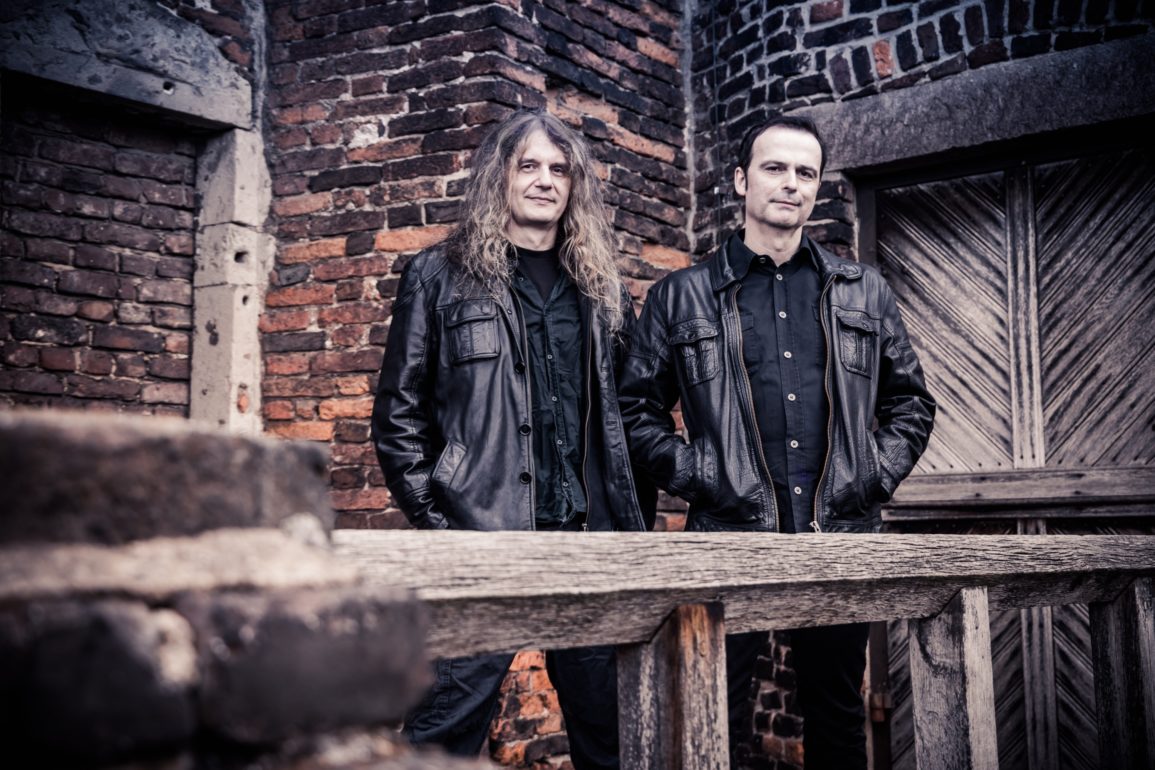Blind Guardian’s 23-year-old “orchestral project” Legacy of the Dark Lands was released on this November. (You can read our review here) We interviewed Hansi Kürsch, the legendary vocalist of the band and we talked about the long adventure of the album, the process of its writing and recording, his experience with the orchestra as a metal vocalist, today’s listeners, the story told on the album and its relation to today’s world and even climate change. Enjoy!
You may also listen to the interview here:
How are you?
I’m good. I’m in the studio and working on new Bling Guardian stuff. Getting my stuff prepared for the day. I will have a couple of interviews during next hours. It’s a busy season, for sure.
Great news! Thanks for taking time to talk to me.
Pleasure.
I want to remind myself. We met this summer in Greece, Chania, after the show.
Oh, right! (laughs)
I was going to make an interview with you back then, but I couldn’t. Now it’s happening. I hope we will also talk for the new Demons & Wizards record in the spring.
Yes, of course. Not a problem at all.
So, let’s start with the questions. First of all, congratulations for the new album. It’s a true masterpiece. I really liked it. I want to ask… how do you feel right now? It must be a big relief because it took so long to finish this album. What do you feel?
It, for sure, is a relief and it’s right, you know, these other two things… the most overwhelming feelings I still have. At points, it even appeared to me as a sort of never-ending story. Because we announced it so many times and I was convinced we would start recording the whole stuff with regard to the vocals, because we’ve been working on the orchestral stuff for at least the last ten years already. But my part of it, it seemed so distant all the time even though it felt close on the other hand. Once I started, I was quite convinced I would be finished very quickly. That was an underrating of what the challenge was. So, yeah, I felt desperate at points and I was like “oh no, it takes another six months, another twelve months”. And that was kind of annoying for me as well. But now I feel relieved, because we finally made it. We were able to record it. And we were even able to release it. Because even that was connected to complications which we had not on the list.
Really? I didn’t know that.
Well, it was technical problems we had with almost everything, because every step administration-wise and engineering-wise and mastering-wise took longer than expected. It was, you know, whenever we did an adjustment, let’s say, in “Harvester of Souls”, we just had to go back and do the adjustments everywhere else as well. It was a technical thing. And It really took forever. I mean the cleaning of all these orchestral parts is a nightmare. But, I mean, we were thorough. When we started in, was it 1996-97, neither André nor I considered that could be a twenty-year and more project – not for sure, we didn’t.
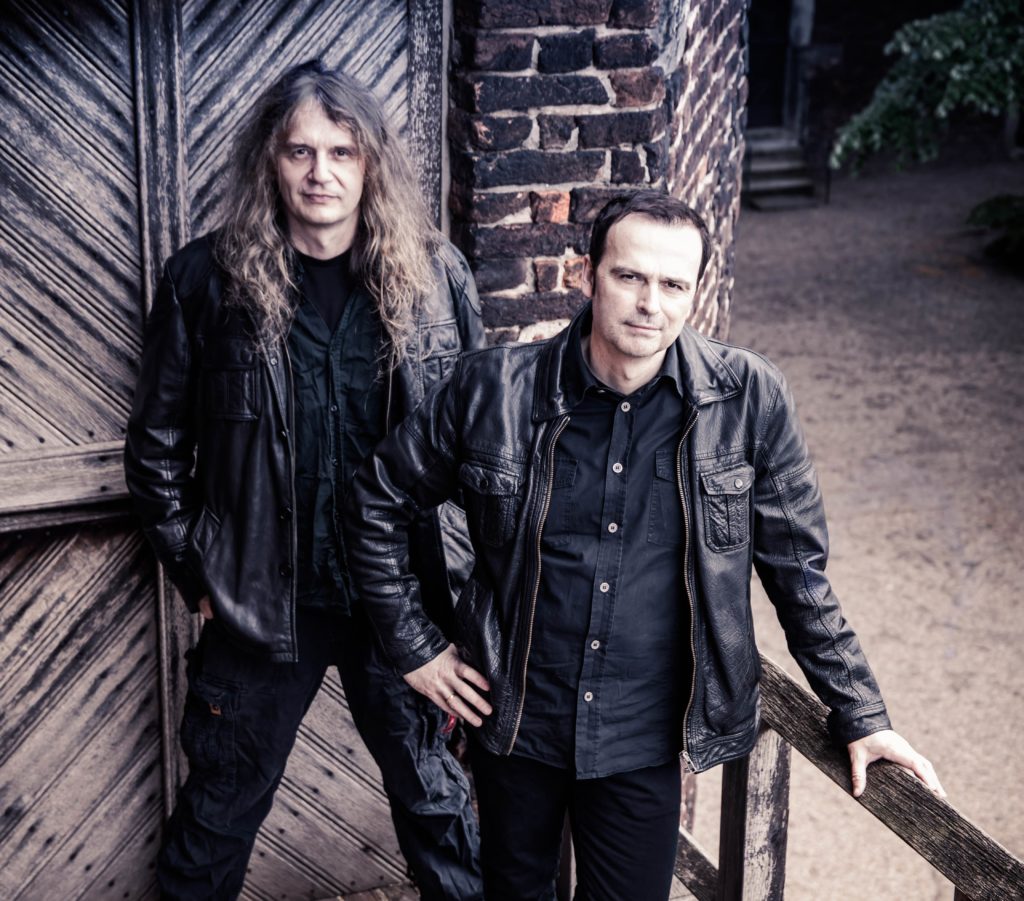
Can you talk about the writing process of the album? Because you wrote some of the songs around 1996, during the Nightfall in Middle-Earth era.
We discuss about that – was it ‘96 when we started or ‘97. I mean that’s really past history and since we did not really keep track on what we were doing. I just have to guess it was ending of ‘96, beginning of ‘97 when André (Olbrich) came up with the first song and at that point it was clearly indicated to be a song for Nightfall in Middle-Earth because we already decided to go for a conceptual album. There were some songs composed which already contained classical elements such as “Nightfall” and I assume at that point we may have worked on a song like “A Dark Passage”. And then, “Gondor” came up as a working title which ended up on the album as “This Storm”. We both felt it was very special. We discussed how to work with it in general, because André just came up with an orchestral arrangement. There was no involvement of the metal band at all at that point. And he just asked me if I felt comfortable to do vocals just to the orchestration and it felt very natural to me. So after I did my part, we got together again and discussed that song one more time and what to do with it. And we both decided that it would not need necessarily the metal band involved and that this might be the beginning of something new. So we put it aside and decided to go for the orchestral project whenever there would be time for it. During the Nightfall in Middle-Earth session, as far as I remember, we also started another song which ended up on the album as “Dark Cloud’s Rising”. So that was also pretty much in the Tolkien era of the band and our whole focus was driven into that direction. We, later on, changed that mindset because of the movies, for example, and, you know, just because of the simple fact that there was too much going on with regard to Tolkien already. And then we changed the subject for the topic for the conceptual topic. But at that point, basically this is what it was. We finished these two songs. And what you hear on the album, in many ways, is not too far away from what we originally have composed. We improved the orchestration of course, we did some adjustments over the years. The songs were never really were considered to be accomplished, but in a certain way they have been, after we composed Nightfall and these two tracks. So we put them aside and whenever we felt that there was a need to go back and compose some orchestral stuff apart from the orchestral stuff which we compose for Blind Guardian as well, we worked on such stuff and it always felt very natural and we made great progress. And in each era, there was, let’s say, two or three songs which we tried to accomplish completely apart from the fact that we still were, you know, thinking about them and trying to improve them over the decades coming afterwards. But, to a certain extent, you can really say that some of the songs always define a certain era of the band within these twenty years.
I was going to ask a similar question. For instance, if you finished this album like ten years ago what would it be like? Would it be too different than it is now? I mean, was it influenced by your regular metal albums? Or did the orchestral project influence your regular albums?
Discussable. I mean, really hard to define which was more important during such eras. I would say there was a benefit for both sides. For instance, “Wheel of Time” was originally composed for the orchestral album. I just felt without the metal band, the song would have lacked something. So I went back to André and told him that I disliked the idea to use that song for the orchestral album, because something was lacking; it was too stagnant for my point of view with regard to the orchestration. So we involved the band. The involvement of the band obviously has had an impact on the orchestration as well. But it turned out to be “Wheel of Time” on At the Edge of Time (album) which is one of our greatest songs ever – I feel. There’s certainly that benefit and this has been the case sometimes – like “And Then There Was Silence”, for example, or on the new album the same can be said about “At the Edge of Time” (song) because “Harvester of Souls” was the original intention for the song. And, as far as I recall, we still had discussions about that, André came to me one afternoon and said, “Well, now I dreamt the song with heavy orchestration. And here it is, with a band involved.” And I said okay. Then I need to do everything anew, which is a fact, you know, whenever you decide to go for one direction it’s a different work pattern in general. Also, with regard to production and sounding and intensity and all that stuff, you know, it’s pretty much related on the instrumentation. So “At the Edge of Time” turned out slightly different than “Harvester of Souls” with regard to the vocals and also with regard to the whole performance of the orchestra and the band. And that is the case, you always have to go back to record the orchestra again because you can’t use the same thing. Same thing, I suppose if we talk about that later on, would have me say if we do the whole stuff with a metal band, which was not the intention as I told you for these songs. But, It’s theoretically possible, very possible, but it takes a lot of time and we have to do everything anew. Back to the question, (laughs) the metal band for sure profited from it and an album like Beyond the Red Mirror was designed into that direction to give a hint to the orchestral album even though it’s misleading because still no one can imagine what it sounds to hear a “Blind Guardian” album without the band, which is Legacy of the Dark Lands. I felt, during songwriting, it was a relief to go back to the orchestral stuff. It felt so much more comfortable in many ways working with it because I didn’t have to fight that much to find my space with vocal arrangements. That’s sometimes more difficult in Blind Guardian. So, it was an uplifting thing for me in each era.
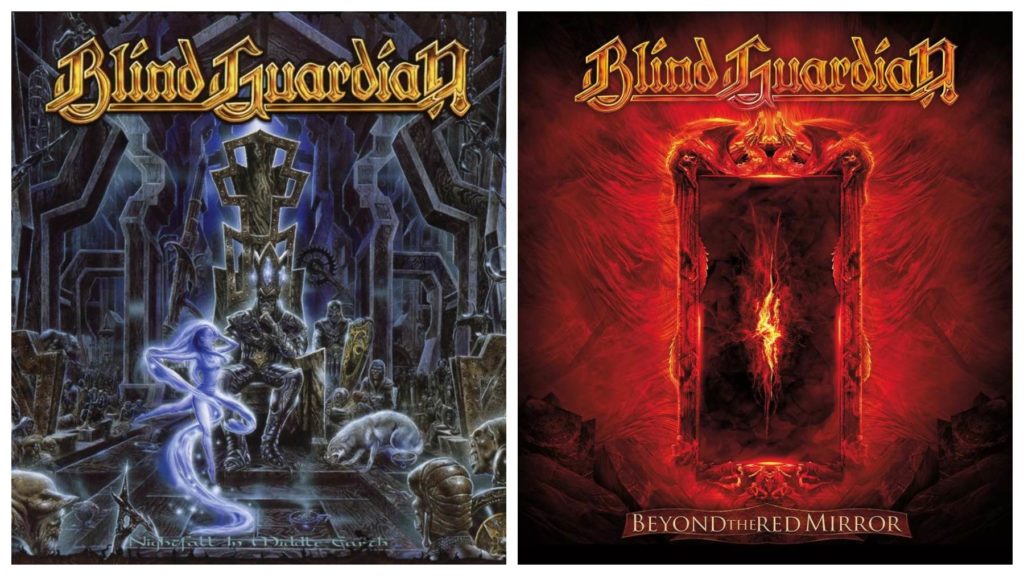
My next question is actually about your vocals on Legacy of the Dark Lands. They are really amazing. Can you tell me about your experience of singing with a real orchestra?
That was the different opposite experience to what I’ve just told you. During songwriting, we worked with programmed orchestrations and these programmed orchestrations are really good nowadays. That is also something which improved over the years and was for the benefit of the songs. When we started, there were few decent sounding sound libraries but not too many. And whenever there was a new one and better one coming out, we adjusted the songs to these sound libraries so at the very end, I was singing to something programmed but sounding like a real orchestra. The benefit of the programmed orchestra is that it doesn’t demand any space in the sound panorama you’re having. So, for me it was far easier to adapt myself into it and that made the whole working process for me so enjoyable. When recording the orchestra, in an orchestra venue like Rudolfinum, you have a live performance recorded which you cannot touch. So I had to live with all the instruments as they were performed. That was one thing, and the other thing is the room itself, which is captured on the microphones. You have that organic musical being as an orchestra is and then there was the only alien me, you know, trying to somehow overwhelm and succeed over that, dominate the orchestra which is almost impossible. And I had to make this experience while singing. In the beginning it was a real struggle for me to find my spot in the orchestra to find a way how to adjust my voice to the orchestra. It was also a big experience process for Charlie Bauerfeind as a producer as well, because he didn’t have an idea either; because no band has ever done anything like that before. And it is Blind Guardian songwriting as people will recognize even though there is no metal band involved. So, on the other hand, even though there was the orchestra and the orchestra does not demand as much distortion as the metal band with regard to the vocals, Blind Guardian music demands the distortion and my voice obviously is designed like that over the decades I’m screaming (laughs) and doing all that vocal stuff I’m doing. So we had to find this very small line. And this was a very painful procedure. It was enjoyable; I really liked working on that stuff, but it sometimes has been very very painful.
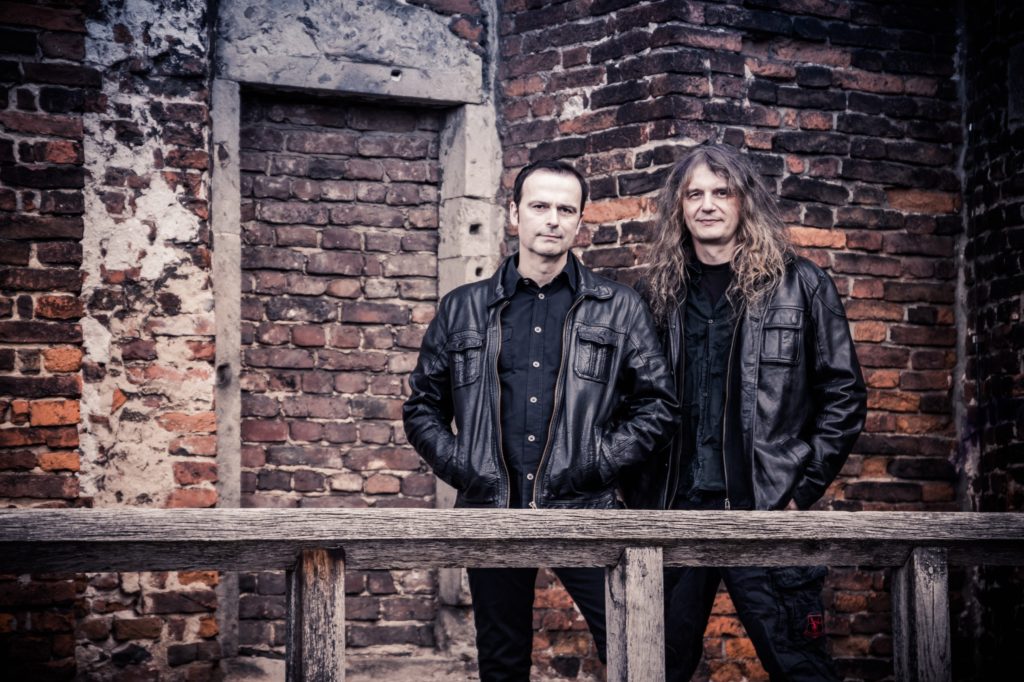
I see… So, Legacy of the Dark Lands is a concept album. You’ve already made some concept albums earlier, but do you think that this kind of albums are challenging for the listeners because nowadays people’s attention spans are very short. What do you think about it?
(Laughs) Not for the defined and regular Blind Guardian fan whoever accompanied us from, let’s say, the late ‘90s on with regard to Nightfall in Middle-Earth should not have too many problems with that. But, that’s a rare species anyway. Because, it is as you said, the attention span of the listener has been destroyed by many things. It’s really difficult to capture the attention as long as, you know, sometimes our music demands. We’re aware of that. And I would never have thought that the habit of listening to music would go into such a direction. I really am surprised by that but, yes, a conceptual album nowadays is a certain risk for sure (laughs). And basically, if we had the chance to release the album ten years ago, it might have been more beneficial with regard to the attention of the listener who still were more able to conceive a whole album without complaining about it being too long. And “I just want have short three minutes – four minutes songs and hope just one beat and one chord structure which I can easily understand”. Blind Guardian has never been like this. And I mentioned that before. The songwriting, as well as production, felt very natural to us and that’s the only measure, instrument we’re having. If we enjoy something, we believe it might be bearable for the patient Blind Guardian listener. And I still believe that this is going to be the case. In a certain way, it is a very courageous album. And it might reeducate people to really pay attention to a whole album because it shines full if you really listen to it in a row. You can pick songs and we made sure that these people will have the benefit, you know, people who want to listen to just one song can do that even on streaming. You can have the separate song and they should be separated so there’s no narration or anything or any additional sound coming across the way of the listener who just wants to listen to regular song. But, yes, it is difficult sometimes, especially talking about a project which is in the making for twenty-two years, to exactly please the audience, the nowadays audience.
I think creating a concept album is a difficult thing because you have to follow a chronological order, a storyline. How do you choose which song tells which story? How do you decide on that?
The songs do. Yes, of course, we spoke to Markus (Heitz) at a certain point and we came up with a frame for the story, but other than that, it was the song and our ideas for the songs. We first defined the running order and after that was fixed, the running order and the songs themselves also defined in which direction the story could go. So, we had to adjust the frame sometimes and sometimes it was just an additional storytelling which Markus had to involve into his storytelling. But since he came first with the Dark Lands as a book I had even more freedom in doing whatever I wanted to do in Legacy of the Dark Lands. We arranged things and agreed on things and even some more defined things came up very late for me sometimes. But, as said, I needed all the freedom because of the music and also because of the phrases’ patterns which needed to go to a certain direction as well.
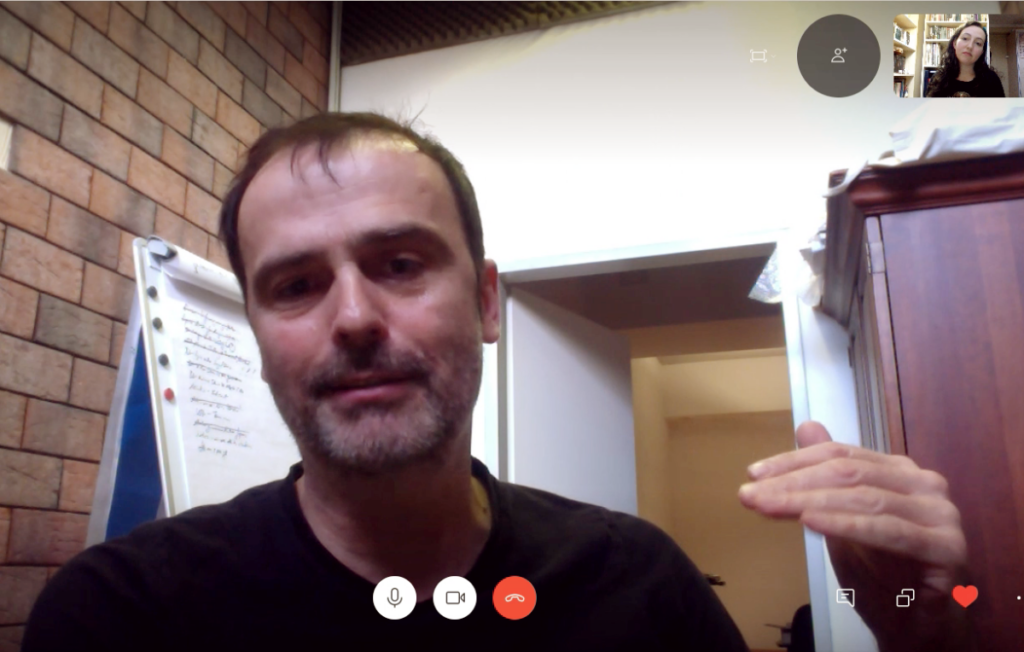
What is the role of humankind on this battle between the First Horseman and the rest three Horsemen? The story of the album is about the First Horseman, Nicolas, trying to avert the apocalypse. But do you think there is a human effect on this “apocalypse”? I mean, is it just evil supernatural characters trying to do this, or are humans responsible for it at the same time?
I mean, basically we have to go back to the environment and the major world we have decided to make that happen, the whole thing. That’s Europe in the 17th century, and The Thirty Years’ War was considered to be the apocalypse. And the people due to three comets showing up in 1618, I mean that’s real history to say so, they believed that the horsemen were amongst them because of these three foreboding shadows of the comets. I mean we made that a part of the story, so there’s always a little bit of mingling of real history. Basically, this is a fictional story and once you talk about religious things like the four riders of the apocalypse mankind is involved. Because it’s all about storytelling. Our understanding of things, how they may end for us, and of course always really related to religious stuff as well, to rules bla bla.. In general, there’s always a strong (laughs) participation of mankind in all these cases. For the story itself, it’s Nicolas’ friends who also try to avoid the apocalypse by helping him and realizing who he is at the very end. And then, as I say in the end, it cannot be avoided because we’re too stupid.
Do you think that the story is applicable to today, to our world right now? Because we have climate change and poverty and inequality…
(Laughs) Climate change is one thing… I still think that can be adjusted. And sometimes the tools which people consider to do that they’re just stupid. But I mean, yeah, we would be able to have effects since some of the stuff is related to mankind, not everything for sure, so we can just try to do our best and make it smoother and maybe change things by that. This Thirty Years’ War was chosen wisely because it has a strong impact on nowadays’ society. It’s still defining Europe as it is, it defines the nations. And basically this is what it is. I mean it really can be related to everything. That was the same with pieces on Beyond the Red Mirror. That was a little too abstract sometimes but that was a lot of the massive amount of information we’re getting every day; but most of them are bullshit. I mean they are supposed to confuse people. You know, that’s why they’re up for. And this is what Beyond the Red Mirror is about basically – about someone who is really confused. And you just set up facts and realities no matter if they’re really facts and realities. You shape them. So that is the same with the story about Legacy of the Dark Lands. It can be easily interpreted into something which is happening nowadays. As said, the climate change, personally, I think that is again a little bit of these facts and I create and shape my truth by you know just coming up with stories which can be seen in slightly different ways.
Do you have a favorite song on the album?
Well, over the last days, I think “In the Red Dwarf’s Tower”. I think that would be my favorite one.
Yes, that’s a great song. I like the last song, “Beyond the Wall” a lot.
That would be my second one. Actually, that’s the last one we composed. That happened in the Beyond the Red Mirror songwriting period. Then we put it aside and we may have finished that one after Beyond the Red Mirror. The very last one is the “1618 Ouverture” but that’s a citation of basically “In the Underworld” mostly. So that has to be treated slightly different but, for most of the stuff, it has been composed up to Beyond the Red Mirror.
Okay. I don’t want to keep you more because I see that you have other interviews. Thank you some much for taking your time to talk to us.
(Laughs) Very nice talking to you.
I hope to talk to you again, for your next projects.
Yes, we will. For sure! And then we will talk about Demons & Wizards (laughs).
Hopefully.
Take care. Bye.
Bye Hansi.

